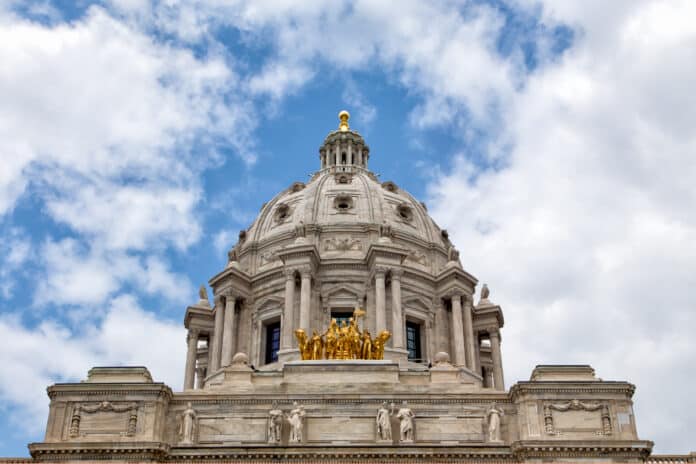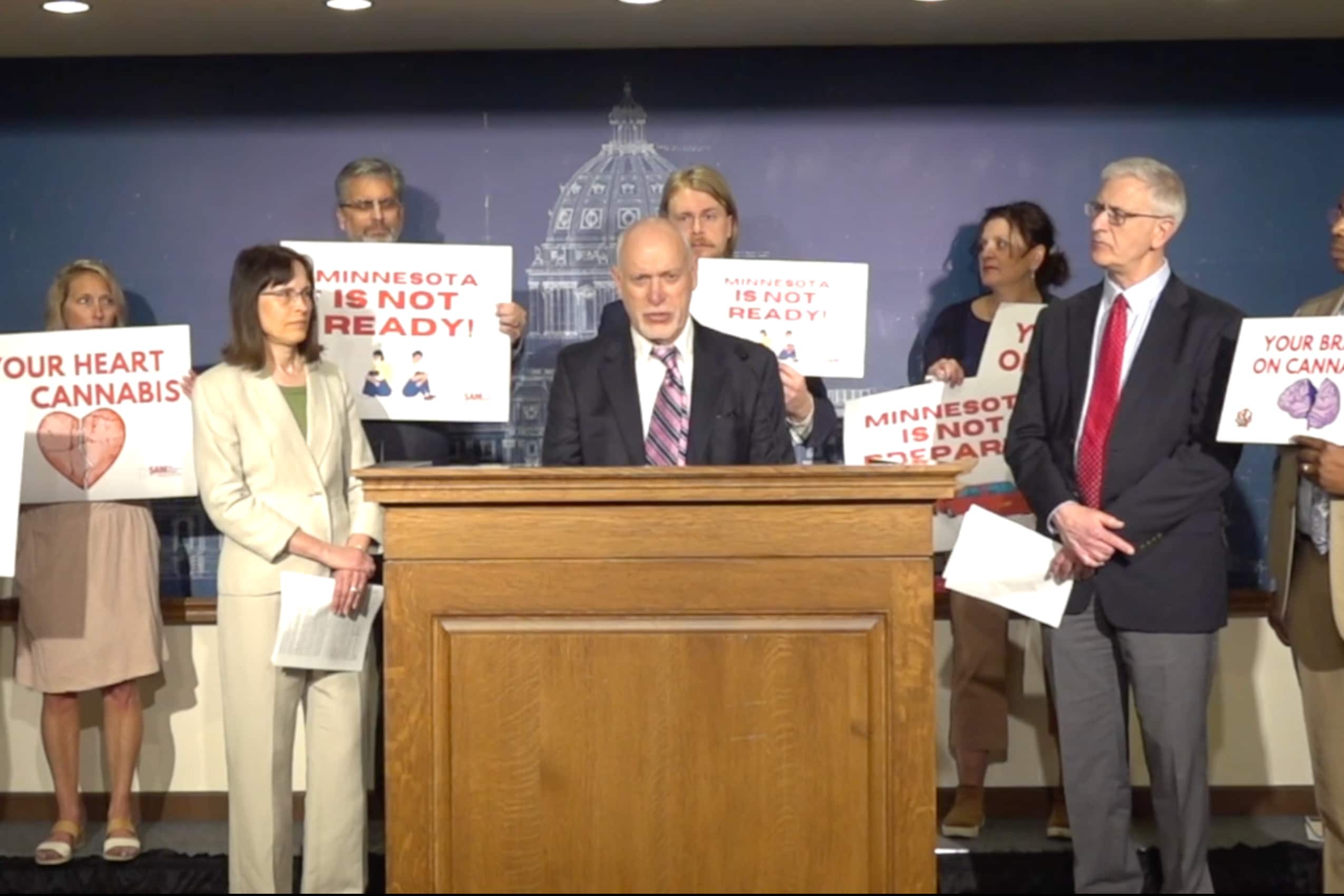
A bill to legalize recreational marijuana in Minnesota is not ready for prime time, several stakeholders said last week.
A broad coalition has formed in opposition to the bill in its current form, including business groups, psychiatrists, religious leaders, and parents of children who were harmed by frequent marijuana use.
Even hemp farmers and retailers who support marijuana legalization criticized the bill last week, saying it favors big businesses over small Minnesota-based companies and imposes an extra 8% gross receipts tax on all cannabis products.
“HF100 turns farmers into felons. Many of the people here today would be felons under this bill that is being pushed through the legislature,” said Glenn McElfresh, the COO and co-founder of Plift, a hemp-infused beverage company.
The Minnesota Industrial Hemp Association submitted written testimony to the House Ways and Means Committee ahead of a Monday hearing, expressing its “deep concerns regarding the inclusion of hemp” in the bill.
“Based upon the plethora of licensing categories included in H.F. 100 the Minnesota Industrial Hemp Association foresees a complex legal and regulatory framework that could stifle growth of the hemp sector. The hemp industry is in danger of losing its customer base, revenue streams, and subsequently the ability to operate. Unfortunately, H.F. 100 may very well put several of our members and the rest of the hemp industry out of business,” the group said.
“Supporters of the bill claim that it does not impose any licensing, regulations, fees, or taxes on hemp farming. This statement neglects the reality for most hemp farmers, in that they grow their own hemp, manufacture consumer products, and sell those products into the market. In reality, H.F. 100 does impose licensing for those hemp farmers who wear multiple hats as hemp manufacturers, as well as hemp retailers,” the organization explained.
Sheriffs across the state are also saying the bill has failed to address “some key public safety issues.”
“Currently, law enforcement lacks an instant, on-site test for cannabis intoxication, similar to a breathalyzer. We also lack a standard to determine if a driver is unfit to be behind the wheel, such as the .08 BAC standard used for alcohol intoxication,” Beltrami County Sheriff Jason Riggs wrote in a commentary Wednesday for the Bemidji Pioneer.
“While the current bills contain provisions for developing a test, they won’t be ready until long after commercial cannabis hits the market. In the interim, how are law enforcement officers expected to keep our roads safe from intoxicated drivers?” he asked.
Lincoln County Sheriff Chad Meester and Olmsted County Sheriff Kevin Torgerson agreed with these concerns. According to Meester, the number of traffic deaths involving drivers who tested positive for cannabis more than doubled in Colorado between 2013 and 2020.
“Traffic risks are not our only concern. Cannabis legalization proponents often cite hampering the black market as a benefit. However, in states with legalized recreational cannabis, the black market has actually grown,” he said. “With these concerns, it is important that our law enforcement agencies receive adequate funding to address the harms of legalized cannabis.”
Opponents of the legislation spoke at a press conference Thursday where they called for a “caution amendment,” which would pause passage of legalization and require state agencies to commission a report on the “potential social and health impacts.”
Dr. George Realmuto, professor emeritus of psychiatry at the University of Minnesota, said the bill has seen improvements in the committee process but is still not ready.

“As the former medical director of the state child and adolescent psychiatric program … I have lots of questions about how we are protecting teens,” he said, urging legislators to increase the legal age to 25.
He said the bill fails to provide adequate funding for mental health treatment and informing youth about the potential harms of marijuana.
“Lessons learned from other states says that cannabis-associated disorders will increase four to fivefold with the availability of high-potency cannabis,” he said.
There are just five weeks remaining in the 2023 legislative session for Democrats to pass the bill. Gov. Tim Walz has promised to sign the legislation into law if it reaches his desk.












